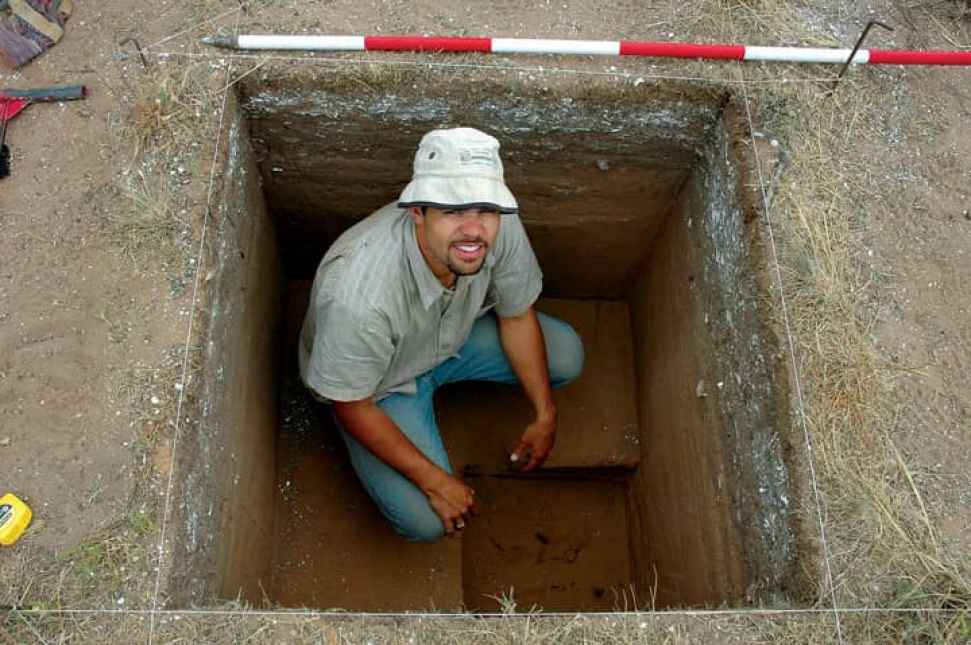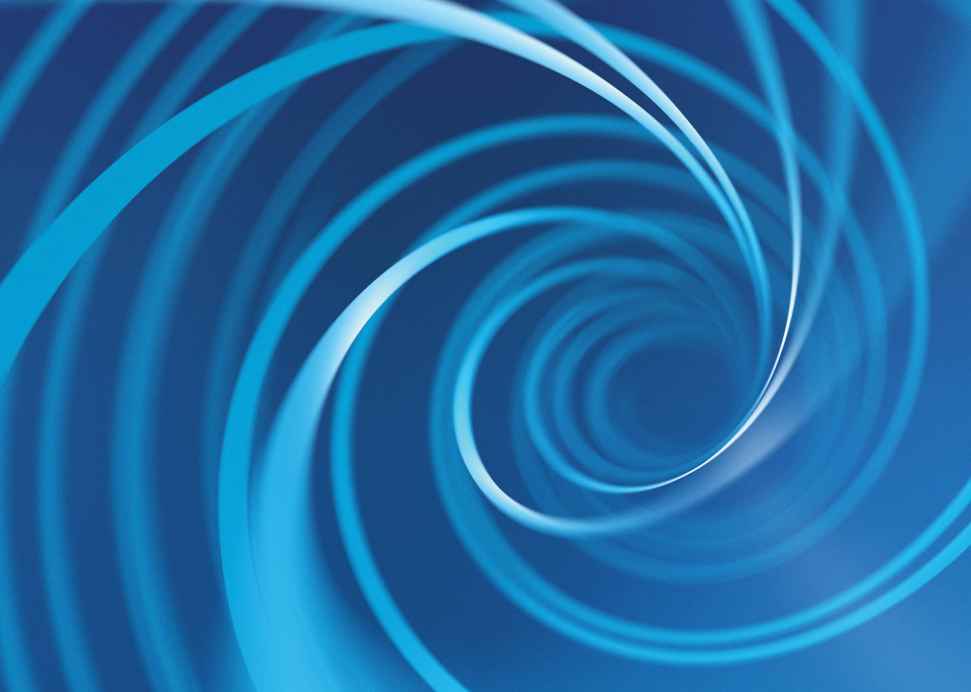Hello my friend in desktop mode.
Hello my friend in desktop mode.
Hello again my friend in desktop mode.
Hello again friend in mobile mode.
John Pickrell
PAST PERSPECTIVES
FROM A PIONEER
—
Flinders pioneering Aboriginal archaeologist, Ngarrindjeri man Chris Wilson, is in high demand.
A discovery that came from Dr Chris Wilson’s decade-long study of 100 shell midden sites along the Murray River is so significant, the National Museum of Australia (NMA) is clamouring to include it in an upcoming exhibit.
The 35-year-old Ngarrindjeri man – who in 2017 became the first Aboriginal Australian to earn a PhD in archaeology – discovered an ‘otolith’, or fish ear bone, from a Murray cod among a wealth of evidence captured in these midden sites. The sites tell of a thriving Ngarrindjeri community that has been hunting and foraging in the area for at least 8,500 years.
Murray cod today are no more than 1.8m in length, but the otolith Dr Wilson found was analysed by his colleague, Dr Morgan Disspain, and suggests a fish at least 2.2m long. “It’s good evidence that the river system at that time, 5,000 years ago, was healthy enough to have fish of great size and age,” they say.
Now a senior lecturer in the Flinders College of Humanities, Arts and Social Sciences, he’s seeking Ngarrindjeri community permission for the otolith to be displayed in an NMA environmental histories exhibition in 2020.
In demand for his Indigenous perspective and archaeological expertise, Dr Wilson is also working with the South Australian Maritime Museum on the involvement of Aboriginal peoples in whaling and sealing.

Dr Chris Wilson is an archaeologist and Indigenous academic from the Lower Murray Lakes and Coorong, South Australia. His research interests include: Archaeology of the Lower Murray; repatriation; archaeology and its relationship with Indigenous peoples.
Dr Wilson hopes to engage Ngarrindjeri more widely in their heritage, and as Indigenous liaison officer of the Australian Archaeological Association, he wants to encourage greater Indigenous involvement Australia-wide in Aboriginal and Torres Strait Islander heritage.
He recently uncovered an unexpected link to his own family history as part of that research. “My family has a strong connection to whales, so I want to explore that further,” he says.
Dr Wilson hopes to engage Ngarrindjeri more widely in their heritage, and as Indigenous liaison officer of the Australian Archaeological Association, he wants to encourage greater Indigenous involvement Australia-wide in Aboriginal and Torres Strait Islander heritage. One focus is inspiring students to undertake postgraduate and undergraduate degrees.
“There are people out on country who do this kind of work, but they are not formally qualified,” he says. “I want to engage with colleagues about how we might encourage young people to get those qualifications.”
He is also a chief investigator with the National Indigenous Research and Knowledges Network, which includes members from 50 Aboriginal nations and 21 universities. Its goal is to swell the ranks of highly skilled and qualified Aboriginal and Torres Strait Islander researchers.
In addition to these many projects, Dr Wilson continues to be involved with repatriating Aboriginal remains to Ngarrindjeri land, and has even been asked to collaborate with a French string quartet on a composition involving Ngarrindjeri themes.
“I’ve been asked by a lot of colleagues to get involved with projects,” says Dr Wilson, who has some busy years ahead.
![]()
Sturt Rd, Bedford Park
South Australia 5042
South Australia | Northern Territory
Global | Online
CRICOS Provider: 00114A TEQSA Provider ID: PRV12097 TEQSA category: Australian University











